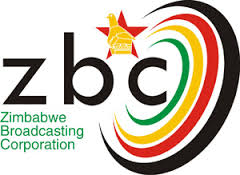| Fiji Broadcasting Corporation | |
|---|---|
 | |
| Launched | 1954 |
| Owned by | Government of Fiji |
| Country | Fiji |
| Language | English, Hindi, Fijian |
| Broadcast area | National |
| Headquarters | 69 Gladstone Road, Suva |
| Website | http://www.fbc.com.fj/ |
The Fiji Broadcasting Corporation (FBC) is one of the two radio broadcasters in Fiji. It was known as Fiji Broadcasting Commission when it began. It traces its history to 1935 when it first began operating under licence from the Posts and Telegraphs Department with the call sign ZJV. At the end of 1952, the legislative council passed the Broadcasting Commission Bill. The commission members were appointed in June 1953. On 1 July 1954, the commission's first programme was broadcast as part of the official opening ceremony.

Fiji, officially the Republic of Fiji, is an island country in Melanesia, part of Oceania in the South Pacific Ocean about 1,100 nautical miles northeast of New Zealand's North Island. Its closest neighbours are Vanuatu to the west, New Caledonia to the southwest, New Zealand's Kermadec Islands to the southeast, Tonga to the east, the Samoas and France's Wallis and Futuna to the northeast, and Tuvalu to the north. Fiji consists of an archipelago of more than 330 islands—of which 110 are permanently inhabited—and more than 500 islets, amounting to a total land area of about 18,300 square kilometres (7,100 sq mi). The most outlying island is Ono-i-Lau. The two major islands, Viti Levu and Vanua Levu, account for 87% of the total population of 898,760. The capital, Suva, on Viti Levu, serves as the country's principal cruise-ship port. About three-quarters of Fijians live on Viti Levu's coasts, either in Suva or in smaller urban centres such as Nadi—where tourism is the major local industry—or Lautoka, where the sugar-cane industry is paramount. Due to its terrain, the interior of Viti Levu is sparsely inhabited.
In broadcasting and radio communications, a call sign is a unique designation for a transmitter station. In the United States of America, they are used for all FCC-licensed transmitters. A call sign can be formally assigned by a government agency, informally adopted by individuals or organizations, or even cryptographically encoded to disguise a station's identity.
Contents
In January 1998 the Fiji Broadcasting Commission was corporated under the government's public sector reform programme and renamed Island Networks Corporation Limited. In June 1999, the new Government led to another change in name – this time to the Fiji Broadcasting Corporation Limited. Today it operates six radio stations; two in each of the major local languages (Fijian, Hindustani, and English) and its first free-to-air television FBC TV was launched on 25 November 2011.
Fijian is an Austronesian language of the Malayo-Polynesian family spoken by some 350,000–450,000 ethnic Fijians as a native language. The 2013 Constitution established Fijian as an official language of Fiji, along with English and Hindi, and there is discussion about establishing it as the "national language", though English remains the official language. Fijian is a VOS language.

FBC TV is an entertainment and news channel based in Fiji broadcasting in English, Hindi and Fijian. It is the third commercial free to air channel in Fiji. It was launched on 25 November 2011 by the Fiji Prime Minister - Rear Admiral (Ret.) Frank Bainimarama. It covers 90% of Fiji’s population through VHF and UHF TV Band. Mai TV and Fiji Television are the main competitors of FBC TV in the country. FBC TV is operated by Fiji Broadcasting Corporation, the company which also runs 6 radio stations, Radio Fiji One (iTaukei), Radio Fiji Two (Hindustani), Gold FM-Fiji (English), Bula FM (Fijian), 2day FM-Fiji (English) and Mirchi FM (Hindi). It had sold over $100,000 worth of television programming, even before it had officially signed on air.
The CEO of FBC is Riyaz Sayed-Khaiyum, a former Fiji Television journalist.
Fiji Television Limited is Fiji's main television network. It was founded on 15 June 1994 as the first permanent commercial television broadcasting network in the country, although television had previously been introduced temporarily in October 1991 to broadcast the Rugby World Cup as well as Cricket World Cup. This was reviewed and reissued in 2000 for a term of 12 years. Fiji TV was listed as a public company in 1996 on the Suva Stock Exchange, now known as the South Pacific Stock Exchange.















